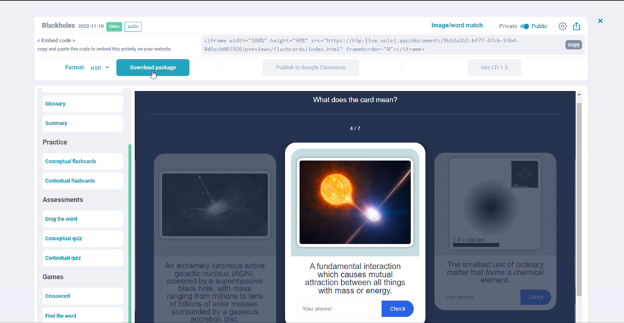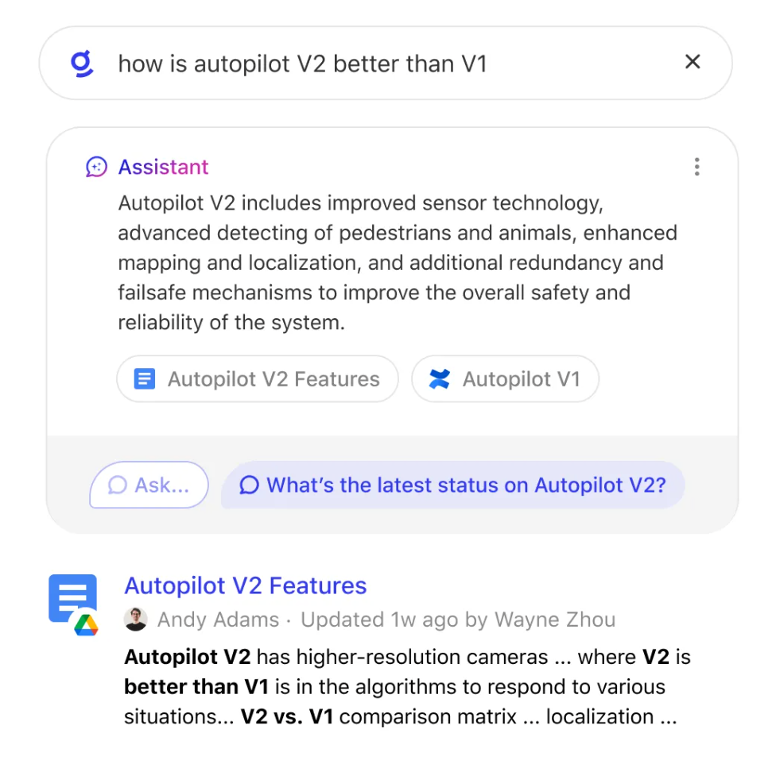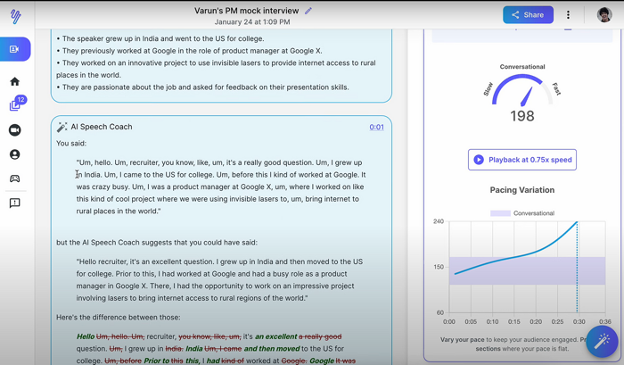2023 emerged as a watershed year for generative artificial intelligence (genAI), igniting discussions across every corner about its transformative potential in Learning and Development (L&D). Let’s take a closer look at where the technological breakthrough has taken us so far and explore some of the most compelling genAI applications in L&D to date.
-
Instant Course-Building Engine
The Possibilities
Generative AI has been extensively explored for its potential to streamline course development. In the not-too-distant future, it’s entirely possible a single click could be all it takes to turn raw information into fully fleshed out learning experiences.
This could signal a shift for online academies to evolve from selling a course catalog to selling data as a product. Drawing on vast datasets from proprietary and third-party content libraries, the modern course engine could spin up personalized learning paths in real time from a simple command.
Current Reality
GenAI today can automate a number of course development workflows such as curriculum mapping and quiz generation. However, a rare few have taken a stab at end-to-end course generation.
The AI-powered tools I’ve seen to date are decent at facilitating the acquisition of knowledge but fall short when it comes to enabling knowledge application. There’s a whole world of active learning—think role-playing, Socratic discussions, or scenario-driven exercises—that they have just scratched the surface of.
One to Watch: Nolej.io
Nolej.io is an outstanding example of genAI’s potential as a rapid course generator. The platform automatically converts textual, video, and audio assets into interactive courseware that saves course creators an average of 10 hours per project.
You kick off production by uploading or providing a URL to any educational content, from old SCORM to video files. Nolej.io transcribes and analyzes the semantic meaning of the content to identify key words and concepts being discussed. In less than a minute, it generates a full courseware with interactive elements embedded to reinforce understanding of the material and sustain learner engagement.

Image Credit: Nolej
2. Performance Support with AI Bots
The Possibilities
The power of genAI in conversational bots is widely recognized, offering a promising use case in L&D for employee performance support.
Imagine a virtual subject matter expert (SME) that delivers guidance in the moment of need. It searches through not just the Internet but the intranet of company presentations, meeting transcripts, and more, surfacing hidden insights and best practices from the corporate brain.
This next-gen AI assistant does more than follow orders—it detects your roadblocks in the flow of work and nudges you with contextually relevant learning resources. The learning portal might just fade into obscurity because the place of learning has become application agnostic. The knowledge management team’s role also could evolve from collating answers to orchestrating algorithms to give greater attention to specific sources and contributors.
Current Reality
We’ve made a significant jump from pre-defined FAQ bots to advanced natural language processing (NLP) bots with an almost intuitive grasp. Today’s AI solutions can plug into your enterprise systems and compose highly relevant answers on the fly. This improvement is further made possible with intricate knowledge graphs that map the web of connections between entities such as documents, colleagues, and events, enriching AI with contextual awareness. Despite this, few solutions out there can proactively supply resources tailored to the work being performed.
One to Watch: Glean
Glean is the closest example of what I regard as a north star for AI-powered performance support. It is an enterprise-ready digital workplace assistant that can crawl through multiple company apps to draw out the most relevant insights, personalized to each user. One of the distinguishing features is that it knows what you are working on. For instance, you can get help writing code building on previous work or gear up for an upcoming meeting without needing to spell out the details because it knows what matters. It also offers pre-emptive support by recommending follow-up questions to deepen understanding.
 Image Credit: Glean
Image Credit: Glean
3. Personalized Feedback from an AI Coach
The Possibilities
L&D teams long have grappled with providing personalized feedback to a multitude of learners. Now, genAI is revolutionizing this with automated evaluation that goes beyond your average declarative knowledge tests.
Just picture for a moment AI being able to give employees feedback on the soundness of their written responses to a scenario-based question because it understands the context and nuances of the answers. With the combined powers of generative AI, NLP, and facial recognition, the AI coach could guide employees through a mock sales pitch or offer presentation pointers during a dry run.
Current Reality
In my quick survey of the AI tool landscape, I’ve noticed that many AI-powered assessment solutions mostly assess the surface-level aspects of a learner’s work. They offer feedback on elements such as grammar and spelling for written responses while gauging audio or video responses by the number of filler words and level of clarity.
These don’t ultimately indicate whether the content of the response will achieve the desired outcome. Does their answer effectively sell the idea or resolve the problem? In many cases, the answer to this still necessitates human judgment.
One to Watch: Yoodli
There are promising developments in AI’s ability to recognize and evaluate the subtle nuances of human expression in writing and speech. One such case is Yoodli, an AI speech coach.
Users can watch the playback of their presentation or meeting, complete with analytics that cover visual, verbal, and vocal aspects. Where genAI shines is how it enables the AI speech coach to offer detailed feedback to speak more compellingly based on the task at hand. Yoodli can be leveraged by organizations to help employees rehearse their presentations and even receive real time nudges while speaking during a meeting.

Image Credit: Yoodli
In short, whether it’s streamlining the workload of L&D teams or enhancing learning outcomes to accelerate performance and growth, the possibilities genAI offers are limitless, and everyone involved stands to benefit.

